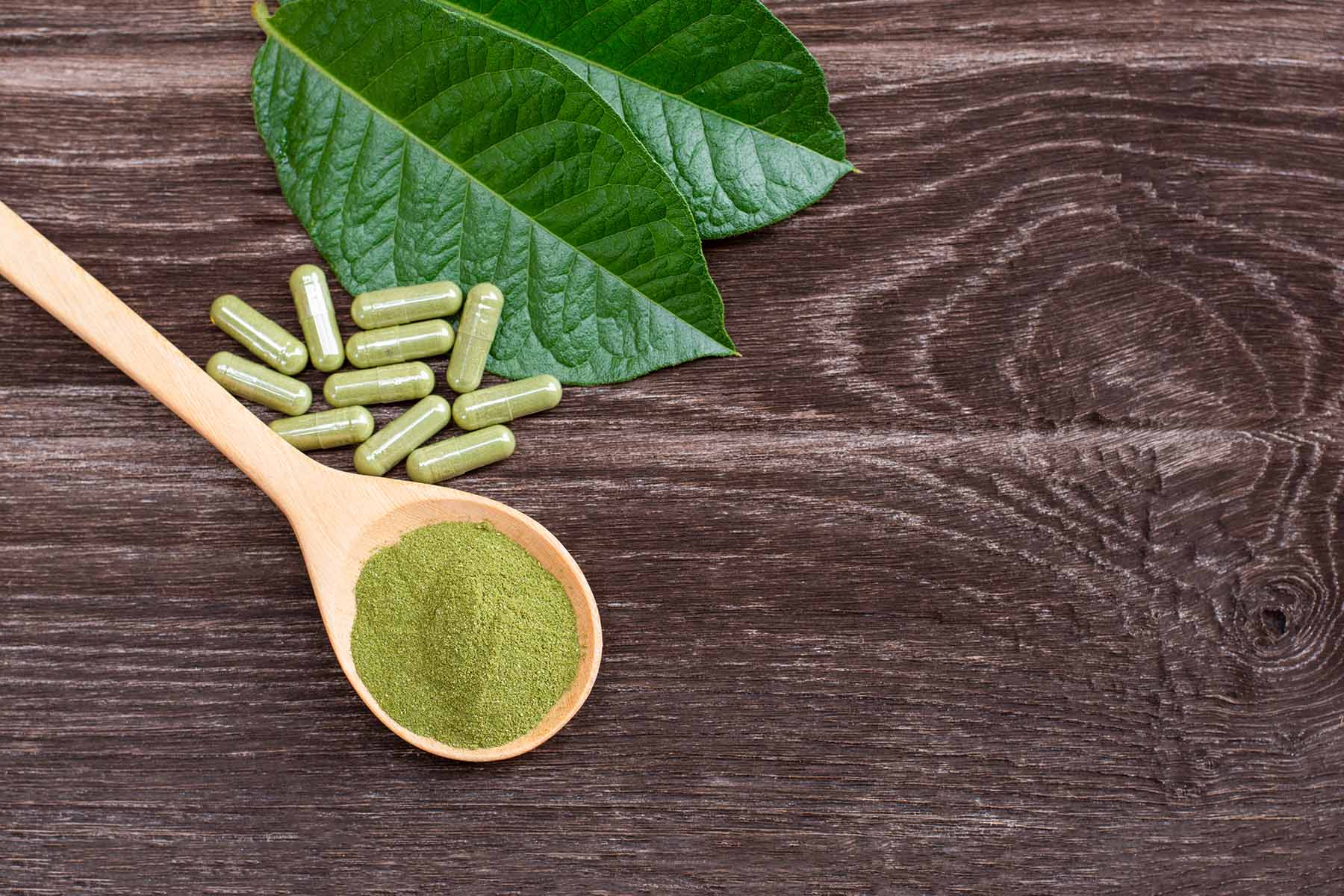Is the Herbal Supplement Kratom Safe?

Have you heard of or tried the herbal supplement kratom?
This plant extract is marketed to boost energy and relieve anxiety, muscle pain, and even opioid withdrawal. But poison control centers warn it can cause seizures, high blood pressure, and even death. Is kratom a helpful supplement when used correctly, or is it too risky to try?
Kratom, or Mitragyna speciosa, has been used in traditional Asian medicine for many years. In 2014, the FDA pulled it from the supplement market in the United States due to safety and addiction concerns.
Between then and 2016, U.S. Marshalls seized millions of dollars worth of kratom supplement bottles and the raw botanicals used to make the products.
But kratom can still be easily and legally purchased online.
Because it’s restricted yet unregulated, there’s no governmental or pharmaceutical industry quality control to standardize dosage or verify its purity.
Why do people use kratom?
Kratom contains mitragynine, a partial opioid agonist. A partial agonist is a type of drug that activates opioid receptors in the brain, but to a much lesser degree than full agonists like heroin and oxycodone.
“Some kratom formulations also contain 7-hydroxymitragynine, an opioid agonist that is estimated to be 10 times as potent as morphine,” says Yaiseli Figueredo, Pharm.D., a clinical pharmacist with the University of Miami Health System.
- So, kratom has the potential to relieve the symptoms of acute or chronic pain and opioid withdrawal.
- Some report that self-administered kratom helped reduce their symptoms of depression and anxiety.
- A review of all relevant studies (1960 to 2017) confirmed these findings, noting that kratom enhanced some participants’ moods and reduced their anxiety.
Because it’s unregulated, kratom is under-tested and unverified.
“Until randomized control trials are completed, I would recommend against the use of kratom,” Dr. Figueredo says. “Because it’s a natural supplement and retail formulations are unregulated, it becomes difficult to know what doses are truly in this product.”
Using opioid-like substances without precise and closely monitored dosing puts users at risk for addiction, substance abuse, and withdrawal symptoms. In addition, some over-the-counter and prescription medications may be unsafe to take in combination with kratom. The supplement can increase the potency, effects, and toxicity potential of certain drugs.
“There was a reported fatality involving kratom use combined with quetiapine, an antipsychotic medication,” Dr. Figueredo says. “A 27-year-old patient developed a life-threatening neurologic condition called a neuroleptic malignant syndrome. His quetiapine plasma levels were in the lethal range.”
In combination with kratom use, it’s risky to consume alcohol, opioids, benzodiazepines, marijuana, stimulants, sedatives, and anticonvulsants.
There has been a noted rise of reported poison control center calls with kratom exposure and 11 deaths following its use. The responses from the FDA and the DEA raise red flags for routinely using this herbal supplement.
Dr. Yaiseli Figueredo, pharmacist
Still curious? Ask your doctor or pharmacist about kratom.
“Because of the number of reported deaths associated with kratom use, I would recommend careful evaluation when considering starting the supplement,” says Dr. Figueredo.
“Having an open, honest conversation with your healthcare provider is extremely important. This applies to starting any pharmaceutical product or supplement, especially if you are taking other medications. The risks versus benefits must be discussed on a case-by-case basis.
“The idea that herbal supplements are benign because they are ‘natural remedies’ should be reconsidered, as the effects of some of these substances can be serious.”
Dana Kantrowitz is a regular contributor for UHealth’s news service.
Tags: alkaloid mitragynine, kratom leaves, kratom products, kratom users, natural pain killer, opioid addiction, pain reliever, potential for abuse
